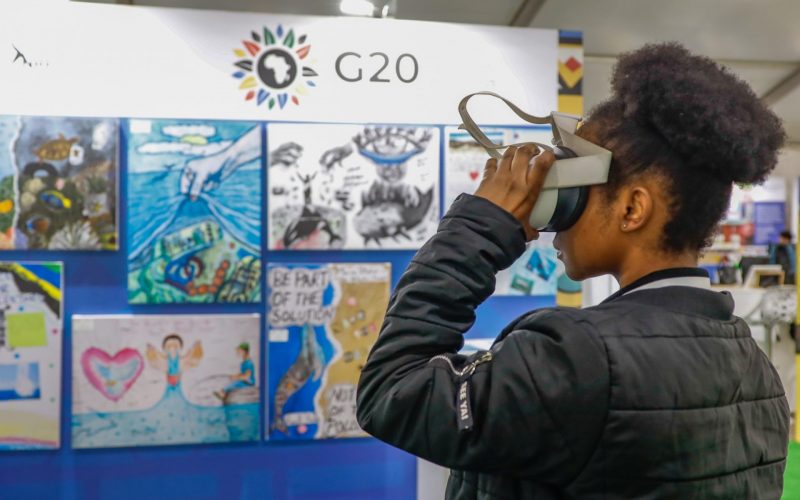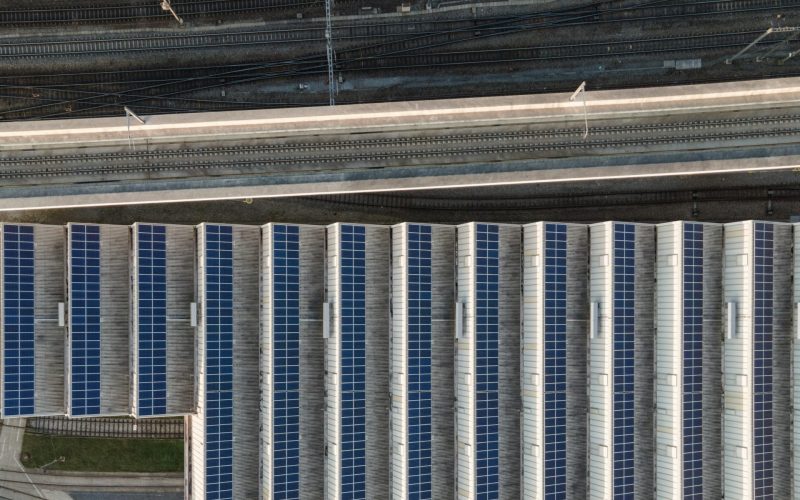Introduction
The global ambition to transition to lower-carbon economies is driven not only by the rising urgency to lower greenhouse gas (GHG) emissions to curb climate change but also by the real social and economic development opportunities associated with greening the economy. A ‘just transition’ should ensure that no one is left behind. For the energy transition, this is most important for the shift away from fossil fuels towards renewable energies and the resultant impact on the most vulnerable people and sectors. In developing countries, the just transition attempts to reconcile development concerns and climate action.
Energy remains a driving force of development. In fact, per-capita energy consumption is strongly related to many development indicators, including life expectancy, health, nutrition and education.1Philip J. Lloyd, “The role of energy in development,” Journal of Energy in Southern Africa 28, no. 1 (2017): 54.However, as the climate crisis worsens, the impacts of slow- and sudden-onset climate disasters are set to harm the poorest and most vulnerable communities disproportionately. This increases the urgency to decarbonise energy production to lower GHG emissions and preserve livelihoods.
The question of energy decarbonisation is no longer whether the world needs to decarbonise, but rather how this can best be achieved and over what time frame. The justice question is how to accomplish a rapid transition in a manner that protects the most vulnerable populations. Two policy imperatives have accelerated policymaking for the energy transition in South Africa and Brazil, the case countries in this working paper. The first imperative relates to opportunities to boost economic development and spur job creation through new and green industries ‘greening’ the economy. The second is the urgent need to address poverty and inequality (and not allow these to deepen from climate disasters) through inclusive, resilient and sustainable growth. Especially for South Africa and Brazil, two countries ranked consistently as the most unequal in the world,2World Bank, “World Development Indicators,” accessed July 7, 2025. crafting transition policies that ‘leave no one behind’ is essential.
The BRICS (Brazil, Russia, India, China and South Africa, and recently incorporating Indonesia, Iran, Egypt, Ethiopia and the United Arab Emirates)3At the Johannesburg XV BRICS Summit in 2023, the BRICS invited new members to the grouping: Argentina, Egypt, Ethiopia, Iran, Saudi Arabia and the United Arab Emirates. Following national elections, Argentina withdrew interest to join BRICS while Saudi Arabia continues to observe BRICS proceedings and has not joined as a full member. Indonesia joined the BRICS as a member from January 2025.grouping continues to play an important geopolitical role, bringing attention to Southern perspectives on global issues such as the energy transition. By virtue of its profile as a grouping of leading emerging economies and because of the controversy surrounding its members, notably China and Russia, BRICS’s summits and communiqués continue to garner widespread attention. On climate change, the grouping has made somewhat less ambitious statements, albeit including climate change in each communiqué since the bloc’s inception in 2009 as BRIC. Instead, BRICS countries choose to reserve their key climate commitment-making for more traditional multilateral forums such as the UN Framework Convention on Climate Change (UNFCCC) Convention of the Parties (COP) process.
For South Africa and Brazil, the climate agenda (to mitigate and adapt to the causes of climate change) is a pressing economic, social and developmental priority. Both recognised and recommitted to ambitious climate action in the 2024 BASIC ministerial statement where, with China and India, they made the call to scale up climate finance commitments from developed countries to trillions rather than previous goals of billions.4Government of China, Ministry of Ecology and Environment, “BASIC Ministerial Joint Statement on Climate Change,” Wuhan, July 21, 2024.
In partnership with the South African BRICS Think Tank and the National Institute for the Humanities and Social Sciences, the South African Institute of International Affairs (SAIIA) has initiated a research project entitled ‘BRICS Shaping Economic Cooperation for Green Growth, Development and the Just Transition: Partnership between Brazil and South Africa’.








